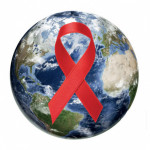The U.S. Food and Drug Administration (FDA) has approved once-daily Kaletra (lopinavir/ritonavir) for people who’ve already taken other antiretroviral (ARV) regimens, according to a press release by Abbott, the drug’s maker. However, once-daily Kaletra therapy is only an option for treatment-experienced patients with two or fewer key mutations in their virus’s protease gene.
Previously, once-daily Kaletra was approved only for people new to ARVs, while those who are treatment experienced had to take it twice a day.
“Adherence to treatment is critical to the effective management of HIV,” said Joseph Gathe, MD, from Baylor College of Medicine in Houston. “A Kaletra once-daily regimen can simplify HIV treatment and offers greater flexibility for patients.”
In considering once-daily Kaletra for treatment experienced people, the FDA looked at data from the M06-802 study, comparing once-daily to twice-daily Kaletra in 599 treatment experienced adults. According to Abbott, both dosing strategies were comparable in terms of efficacy, side effects and the emergence of drug resistant HIV.
One-daily Kaletra dosing may not be suitable for all treatment-experienced patients, however. According to Abbott and the FDA, people with HIV containing three or more protease mutations—perhaps from previous exposure to a protease inhibitor—must take the drug twice a day. These mutations include: L10F/I/R/V, K20M/N/R, L24I, L33F, M36I, I47V, G48V, I54L/T/V, V82A/C/F/S/T and I84V.
Advertisement
Advertisement
Advertisement






Comments
Comments